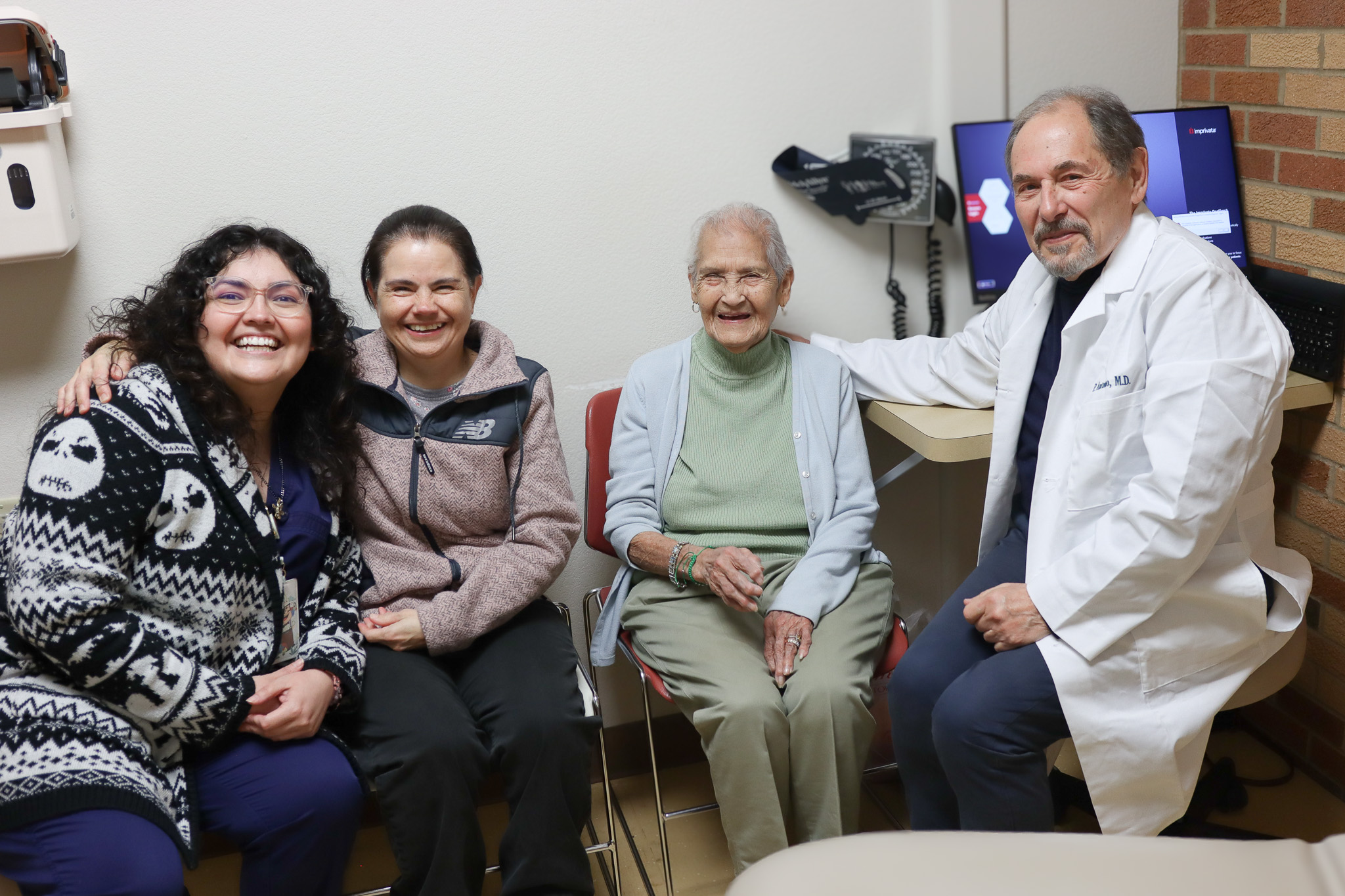MILWAUKEE — For years, Wisconsin’s Latino families have struggled to find memory care that truly speaks their language, not just in translation, but in trust. Now, a partnership between the University of Wisconsin–Madison and Milwaukee’s United Community Center aims to change that by training future doctors to deliver culturally grounded dementia care.
The new bilingual dementia course at UW–Madison’s School of Medicine and Public Health, led by Dr. María Mora Pinzón, is the first of its kind in the state. It teaches medical students how to recognize and respond to dementia symptoms within Latino communities, where cultural stigma, language barriers and limited access to specialists have long delayed diagnosis and care.
Latinos are 1.5 times more likely than white Americans to develop Alzheimer’s disease, according to the Centers for Disease Control and Prevention. Yet fewer than 10 percent of Latino older adults with dementia receive a formal diagnosis. And almost 9 out of 10 Hispanics say it is important for Alzheimer’s and dementia care providers to understand their ethnic or racial background and experiences.
As Wisconsin’s Hispanic population continues to grow, public health experts warn that a shortage of bilingual providers could deepen the gap in timely diagnosis and support.
“There is a lack of culturally and linguistically appropriate dementia services in many communities,” said Jenner Steiner, Chief Marketing and Communications Officer of the United Community Center in a statement to the Wisconsin Latino News.
“For example, language barriers between families and healthcare or social service providers remain a significant challenge, often delaying or limiting access to timely and adequate support,” she continued.
The United Community Center, located in Milwaukee’s South Side, has become a model for community-based care since launching its Latino Geriatric Center in 2007. The clinic’s bilingual staff, including a nurse, psychologist and neurologist, provides diagnostic screenings, caregiver education and long-term support for Latino families.
The clinic is part of the Wisconsin Alzheimer’s Institute’s statewide network of 40 affiliated dementia diagnostic clinics, which together provide care to more than 3,000 new patients annually, many from rural and underserved communities.
Stigma remains one of the most persistent barriers. Within many Latino households, dementia is often misunderstood or hidden, viewed as a normal part of aging or a sign of instability.
“The term ‘dementia’ is often associated with being “crazy” or mentally unstable, and symptoms are frequently viewed as a normal part of aging, delaying early diagnosis and treatment. ” said Steiner.
Even when families do seek care, literacy and language can present further challenges.
“Printed or web-based materials, even when translated into Spanish, may be written at a higher reading level than many can comfortably understand,” Steiner said.
“Based on UCC’s experience since 2007, most Latino clients prefer simple, conversational Spanish or English and value direct, personal communication over written materials,” she continued.
That preference reflects the Latino cultural value of personalismo, a trust built through personal, warm interactions. When interpretation replaces direct communication, emotional cues and meaning can be lost.
The UW–Madison course addresses those nuances head-on. Developed in collaboration with UCC, the elective integrates cultural competency and real-world case studies into medical training. Students learn to discuss diagnoses with empathy, address misconceptions, and approach memory loss through a culturally informed lens.
“Diagnosing Latinos and working with Latino groups is slightly different,” said Dr. María Mora Pinzón, who leads the bilingual dementia course at UW–Madison’s School of Medicine and Public Health.
“It’s not only about having all the tests in Spanish, but about what other evaluations are needed to get that comprehensive picture,” she told CBS 58.
Mora Pinzón said the goal of the new course is to prepare future physicians to provide care that goes beyond translation and to truly understand the cultural context of their Latino patients. The program is designed to help students learn strategies for working with Spanish-speaking families and understand how cultural perspectives influence care, according to a UW–Madison release.
National data shows the urgency of this work. The Alzheimer’s Association projects that nearly 14 million Americans will live with dementia by 2060, with the largest increases among Hispanic and Black populations.
In Wisconsin, an estimated 110,900 residents age 65 and older are living with Alzheimer’s disease, according to the Alzheimer’s Association.
To address those gaps, the United Community Center has continued to expand programs like Fortaleciendo Familias, which offers caregiver education sessions in Spanish, and has extended telehealth access across Milwaukee, Racine, Kenosha and Waukesha counties.
Early feedback shows the model works: in a recent survey of 21 caregivers, 90 percent said they were very satisfied with the quality of care, highlighting compassion and cultural understanding as defining strengths.
Steiner said the next step is growing the workforce itself. The collaboration with UW–Madison is designed to prepare a new generation of healthcare professionals who not only speak Spanish but understand the cultural realities shaping Latino health.
“This initiative is about preparing doctors who don’t just speak the language, but who understand the Latino experience,” she said.
Photo Credit: UCC Latino Geriatric Center Memory Care Program nurse and physician work with caregivers and patients throughout the process. (United Community Center)
